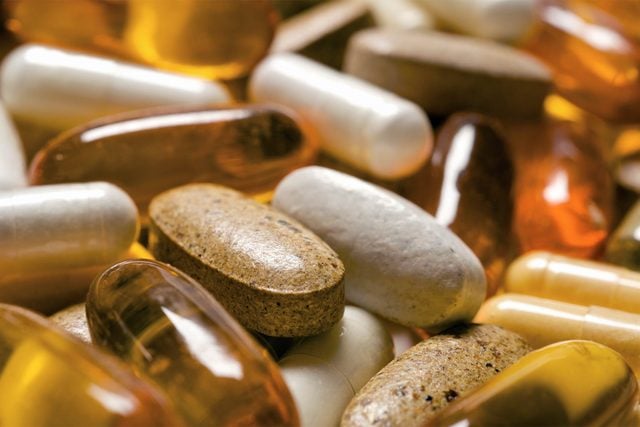Could Probiotics Be Your Best Defense Yet Against Spring Allergies?
Updated: Jun. 30, 2021
Here's why you may want to consider taking a supplement this spring.
An estimated 10 to 30 percent of the population lives with seasonal allergies. As seasonal allergies get worse with warm weather and pollen release, many people look for ways to augment their usual allergy treatments with alternatives. One potential therapy is probiotics.
Probiotics are the good bacteria that live in your gut. Probiotics are naturally present in many foods, such as yogurt and fermented foods like sauerkraut, and you can also find them as supplements.
Probiotics are often touted as a way to improve digestive issues but some research finds that probiotics may be beneficial for a variety of bodily functions, from mental health to immunity. A 2015 meta-analysis on probiotics and allergy symptoms performed by researchers at Vanderbilt University Medical Center found that many studies show that probiotics may help deter allergy symptoms.
Justin Turner, MD, PhD, the lead researcher on the analysis, says that while it is still unclear how probiotics help ward off symptoms, “Several studies suggest that they may alter the immune system and reduce inflammatory signals that are associated with allergies.”
Seasonal allergy symptoms typically include a stuffy or runny nose, sneezing, itchy and watery eyes, and sometimes, puffy eyes or swollen nasal passages. The study looked at the results of 23 previous trials. Overall the researchers found that probiotics seemed to benefit people who suffer from seasonal allergies, improving their symptoms, particularly providing nasal relief.
“Probiotics have been shown, in some studies, to be associated with improved symptoms of allergic rhinitis,” says Andrew Nickels, MD, allergist and assistant professor of medicine at Vanderbilt University Medical Center. “Unfortunately, it is unclear which strains of bacteria found in the probiotics would be most helpful and the studies that have investigated this topic have shown mixed results.”
Probiotics and allergy shots
Another study from 2017, published in the American Journal of Clinical Nutrition, found that the probiotic combination of lactobacilli and bifidobacteria, sold as Kyo-Dophilus in stores, helped reduce allergy-related nose symptoms in allergy sufferers at the height of spring allergy season. The researchers, from the University of Florida, believe those probiotic strains work by boosting the body’s percentage of regulatory T-cells, which could, in turn, raise tolerance to hay fever symptoms.
Probiotics are classified as a supplement and further research is needed before doctors are able to recommend when and how to take probiotics for allergy relief, according to Dr. Turner.
Still, probiotics may be an option for those who aren’t happy with allergy shots—currently the best allergy treatment available—as future research is still underway, he says.
“There is some evidence that taking probiotics while getting allergy shots may make the allergy shots more effective,” says Dr. Nickels. “While the current numbers of patients studied are small, there is excitement in the field that probiotics could be a helpful addition to treating allergic rhinitis.”
Next up: 30 things your allergist wishes you knew.
